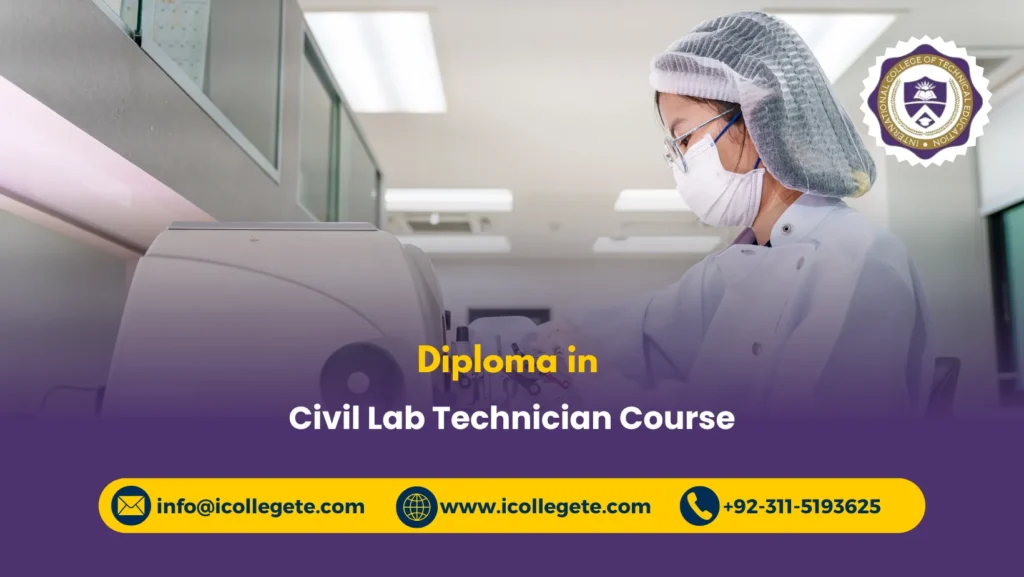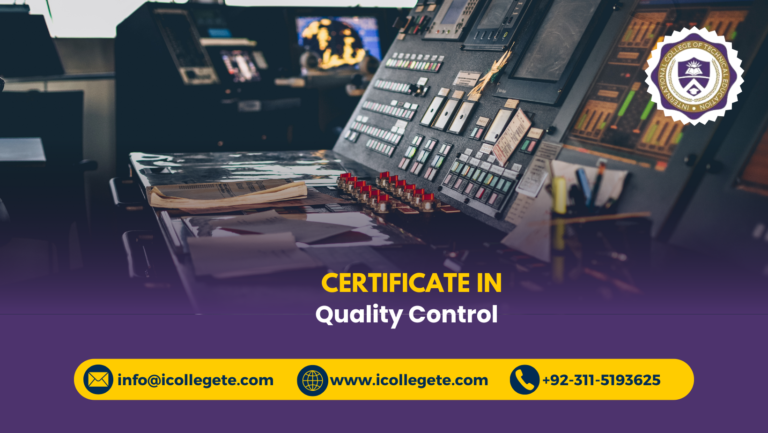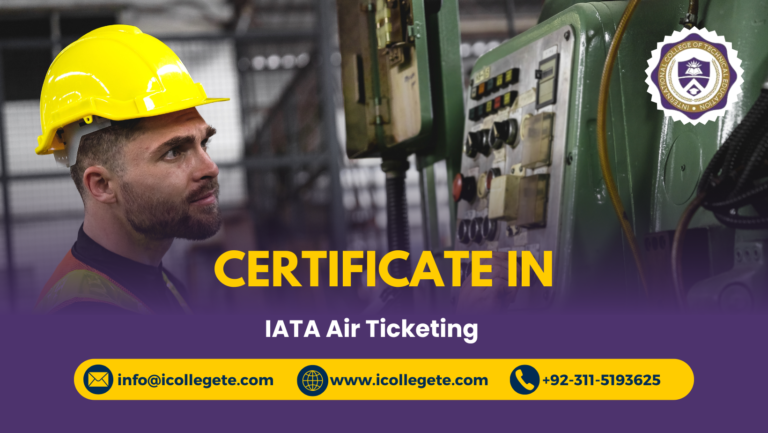The Diploma in Quality Control is a specialized program designed to train students in the principles, techniques, and practices of quality assurance across industries. This course focuses on ensuring that products, processes, and services meet established standards of safety, reliability, and efficiency.
Learners will gain knowledge in inspection methods, testing procedures, statistical quality control, ISO standards, and compliance regulations. The program also emphasizes practical skills in monitoring, evaluating, and improving production processes to minimize defects and enhance customer satisfaction.
Graduates of this diploma are prepared for careers in manufacturing, construction, pharmaceuticals, food processing, and engineering sectors, where quality control plays a critical role in maintaining competitiveness and trust.
The Diploma in Quality Control consists of various modules, each focusing on different aspects of the quality control process:
- Introduction to Quality Control
- Overview of QC principles and their significance in business operations.
- The role of quality control in ensuring product quality and customer satisfaction.
- Quality Management Systems (QMS)
- Overview of global quality standards such as ISO 9001.
- How quality management systems integrate with QC practices to ensure compliance.
- Inspection and Testing Techniques
- Methods for inspecting raw materials, components, and finished products.
- Tools and equipment used in product testing and defect identification.
- Statistical Process Control (SPC)
- Introduction to statistical methods used in quality control, including control charts and sampling techniques.
- How to interpret data and make decisions based on statistical analysis.
- Quality Standards and Regulatory Compliance
- Learn about key industry standards (e.g., ISO, GMP, and FDA) and how to ensure products meet legal and safety requirements.
- Understanding how compliance impacts the quality control process.
- Root Cause Analysis and Problem-Solving
- Techniques for identifying the root cause of quality issues using tools like Fishbone Diagrams and the 5 Whys.
- How to implement corrective and preventive actions (CAPA) to eliminate quality problems.
- Corrective and Preventive Actions (CAPA)
- The importance of CAPA in the quality control process.
- How to document, analyze, and implement CAPA to maintain product quality and avoid defects.
- Quality Control in Manufacturing and Production
- Best practices in QC for manufacturing and production settings.
- The role of quality control in reducing waste, improving efficiency, and ensuring high-quality output.
Upon successful completion of the Diploma in Quality Control, students will be able to:
- Understand the Fundamentals of Quality Control: Gain a deep understanding of the key principles, objectives, and importance of quality control in product manufacturing and service delivery.
- Implement Quality Control Systems: Learn how to implement quality control systems and practices, including ISO standards, Lean, and Six Sigma methodologies.
- Apply Statistical Methods: Master statistical techniques used to monitor and evaluate production processes, ensuring consistent product quality.
- Conduct Inspections and Testing: Develop the skills to conduct thorough inspections, tests, and audits at various stages of production to identify defects or deviations from standards.
- Analyze Data and Monitor Quality: Learn to analyze quality control data, use tools like control charts, and monitor production processes to maintain product standards.
- Solve Quality Issues Effectively: Acquire problem-solving skills to identify root causes of quality problems and implement corrective and preventive actions (CAPA).
- Ensure Compliance with Industry Regulations: Learn about regulatory compliance and how to ensure that the organization’s products meet the required industry standards and customer specifications.
- Foster a Culture of Quality: Develop the skills to communicate the importance of quality control within an organization and promote a quality-driven culture.
The Diploma in Quality Control course offers a wide range of benefits for individuals looking to advance their careers in quality management or for companies aiming to improve their production standards:
- Enhanced Career Prospects: Quality control professionals are in high demand in various industries such as manufacturing, pharmaceuticals, food production, and more. This course opens doors to roles like QC Inspector, Quality Manager, and Production Supervisor.
- Improved Product Quality: By mastering the QC techniques taught in the course, you can help organizations enhance product quality, reduce defects, and increase customer satisfaction.
- Better Problem-Solving Skills: Learn to identify quality issues at early stages and use corrective actions to prevent them from affecting the final product.
- Increased Industry Knowledge: Gain expertise in industry standards, regulatory compliance, and best practices, helping organizations stay competitive in global markets.
- Higher Organizational Efficiency: By implementing quality control systems, you can streamline production processes, reduce waste, and improve overall operational efficiency.
- Practical Tools for Quality Improvement: The course equips you with a variety of tools such as statistical quality control, root cause analysis, and inspection techniques that can be directly applied in the workplace.
The Diploma in Quality Control is ideal for anyone looking to pursue a career in quality control or improve their existing skills in quality management. The course is specifically suited for:
- Quality Control Inspectors and Technicians: Individuals currently working in QC roles who want to gain advanced knowledge and enhance their skills.
- Production and Manufacturing Managers: Professionals overseeing production processes who need to ensure product quality and compliance with industry standards.
- New Graduates in Engineering or Manufacturing: Recent graduates from engineering, manufacturing, or related fields who wish to enter the field of quality control.
- Quality Assurance Professionals: Individuals working in quality assurance who wish to expand their knowledge of quality control practices.
- Business Owners and Entrepreneurs: Entrepreneurs looking to implement effective quality control measures to ensure their products meet customer expectations.
- Individuals Seeking Career Advancement: Professionals aiming to move into more senior quality control or management positions.











